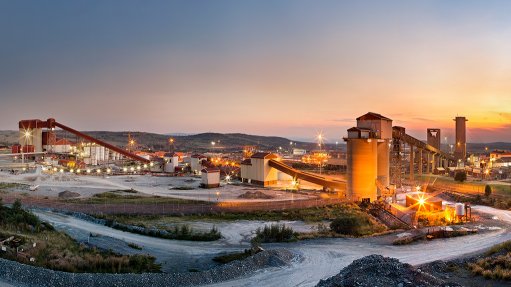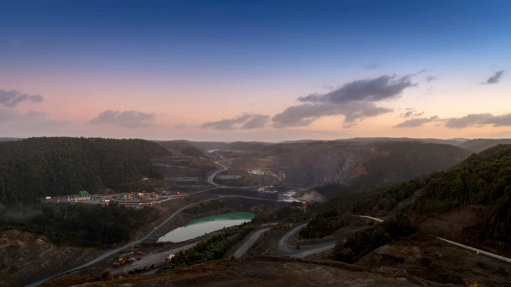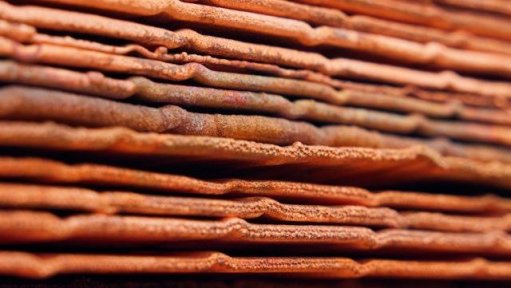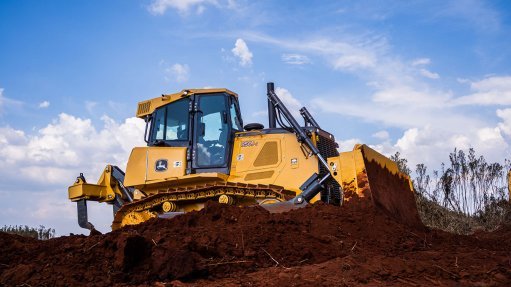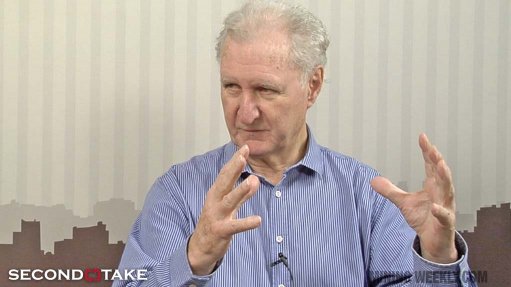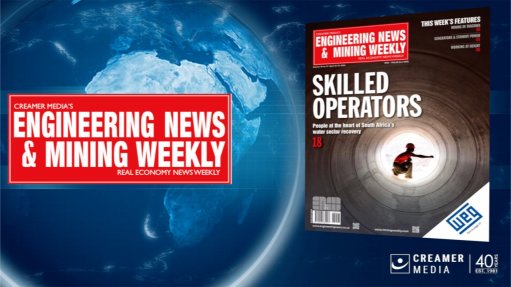Constructive winds blowing in South African mining – Goldman Sachs
There are signs of very constructive winds blowing in the South African mining sector despite many being overwhelmed by the negative headlines, says Goldman Sachs International MD Colin Coleman.
Coleman, who took part in a panel discussion on the first day of the Joburg Indaba, predicts a reversal of the current negative scenario.
“Many people in this audience probably feel overwhelmed by negative headlines. But I would predict that the tide is turning. There’s often darkness before the dawn,” he says, adding that no one in leadership in South Africa wants the economic growth rate to remain down at 1.5%, unemployment to persist at 35% and inflation to continue at 6.5%.
“There are signs, I think, of very constructive winds blowing. “They may not be apparent, but I would predict that they are on their way,” says Coleman, the member of a family that has illustrious anti-apartheid struggle credentials.
Anglo American Platinum chairperson and former Cabinet Minister Valli Moosa and Webber Wentzel mining law luminary and former Opposition politician Peter Leon, who were both part of the same Joburg Indaba panel discussion, also sent messages of the likelihood of an improved environment for the mining sector.
“I think we’re at a point in South Africa where the mining conversation is being taken seriously,” says Moosa, who, with Leon, notes the cooperative approach of new Minerals Minister Ngoako Ramatlhodi.
With large fiscal and current account deficits, South Africa is currently also weighed down by sky-high State-owned enterprises (SoEs) borrowings of R466-billion.
“I actually think these economic headwinds are going to be just the catalyst we need to turn around our mining industry,” says Leon, who believes it is unnecessary for the State to be burdened with having to own, operate and manage all the power and rail infrastructure needed by the mining industry.
“If you look at developing countries like Brazil or Australia, none of that exists,” he points out.
Coleman says his prediction of a turning of the tide based on the attempts of the ruling party to address South Africa’s labour issues, SoE matters and the poor return on capital employed in mining.
“If you read the winds, you will see some very healthy signs of constructive dialogue happening,” Coleman says, adding that a close watch should be kept on the way new Finance Minister Nhlanhla Nene leverages strategic assets to fund power utility Eskom in his upcoming Medium Term Budget Policy Statement.
While he acknowledges the decline of the South African mining industry in the last 20 years, he points out that mining still represents 9% of South Africa’s gross domestic product, makes up 38% of the country’s exports and contributes in a major way to local manufacturing.
He cautions on the need to understand that two different languages, one political and one economic, often appeared to be used in the attempts to resolve South Africa’s seemingly intractable economic growth problem.
As a consequence, his Goldman Sachs International team studied the ten-year returns on capital investment in mining in South Africa and internationally, using an after-tax-earnings measure compared with total capital invested.
On that basis, iron-ore was the only commodity that had earned returns greater than the cost of capital.
In the last ten years, it was found that platinum-group metals (PGMs) earned about 12.5%, which was around the cost of capital, but gold returned only 3.1%, which was way below the cost of capital.
Moreover, the poor returns had taken place during a bull market in commodities, whereas South Africa was now facing a slowdown in the commodities cycle, accompanied by the downward repricing of iron-ore, gold and oil, which would make meeting the cost of capital even tougher for the mining industry.
In looking for leverage points, the Goldman Sachs International team found that, while productivity in PGMs mining had fallen by 5% in the last 20 years, wages had risen by 5% in real terms in the same period.
He acknowledges, however, that mining industry employees have a greater-than-normal inflation cost because of impacts that are transported into their wages, which contaminate their real purchasing power in reflective income.
But labour is clearly in a wrong-way relationship with productivity and wage inflation, which the South African mining industry will have to address.
A focus is also needed on the level of the efficiency of SoEs, such as Eskom, in dealing with the cost of electricity, given the major input into the cost of production that power represents.
Regulatory costs, including black economic-empowerment costs, also need attention and smart regulation is what the country should be pursuing.
What it comes down to is that the mining industry will not be able to meet investors’ cost of capital without a team approach, involving regulators, unions, political parties, mining experts and producers creating directional improvement.
South Africa already has structures that can be used for this purpose, including the newly revitalised mining industry growth, development and employment task team, or Migdett, process, the Framework Agreement for a Sustainable Mining Industry and annual summits.
Comments
Press Office
Announcements
What's On
Subscribe to improve your user experience...
Option 1 (equivalent of R125 a month):
Receive a weekly copy of Creamer Media's Engineering News & Mining Weekly magazine
(print copy for those in South Africa and e-magazine for those outside of South Africa)
Receive daily email newsletters
Access to full search results
Access archive of magazine back copies
Access to Projects in Progress
Access to ONE Research Report of your choice in PDF format
Option 2 (equivalent of R375 a month):
All benefits from Option 1
PLUS
Access to Creamer Media's Research Channel Africa for ALL Research Reports, in PDF format, on various industrial and mining sectors
including Electricity; Water; Energy Transition; Hydrogen; Roads, Rail and Ports; Coal; Gold; Platinum; Battery Metals; etc.
Already a subscriber?
Forgotten your password?
Receive weekly copy of Creamer Media's Engineering News & Mining Weekly magazine (print copy for those in South Africa and e-magazine for those outside of South Africa)
➕
Recieve daily email newsletters
➕
Access to full search results
➕
Access archive of magazine back copies
➕
Access to Projects in Progress
➕
Access to ONE Research Report of your choice in PDF format
RESEARCH CHANNEL AFRICA
R4500 (equivalent of R375 a month)
SUBSCRIBEAll benefits from Option 1
➕
Access to Creamer Media's Research Channel Africa for ALL Research Reports on various industrial and mining sectors, in PDF format, including on:
Electricity
➕
Water
➕
Energy Transition
➕
Hydrogen
➕
Roads, Rail and Ports
➕
Coal
➕
Gold
➕
Platinum
➕
Battery Metals
➕
etc.
Receive all benefits from Option 1 or Option 2 delivered to numerous people at your company
➕
Multiple User names and Passwords for simultaneous log-ins
➕
Intranet integration access to all in your organisation






